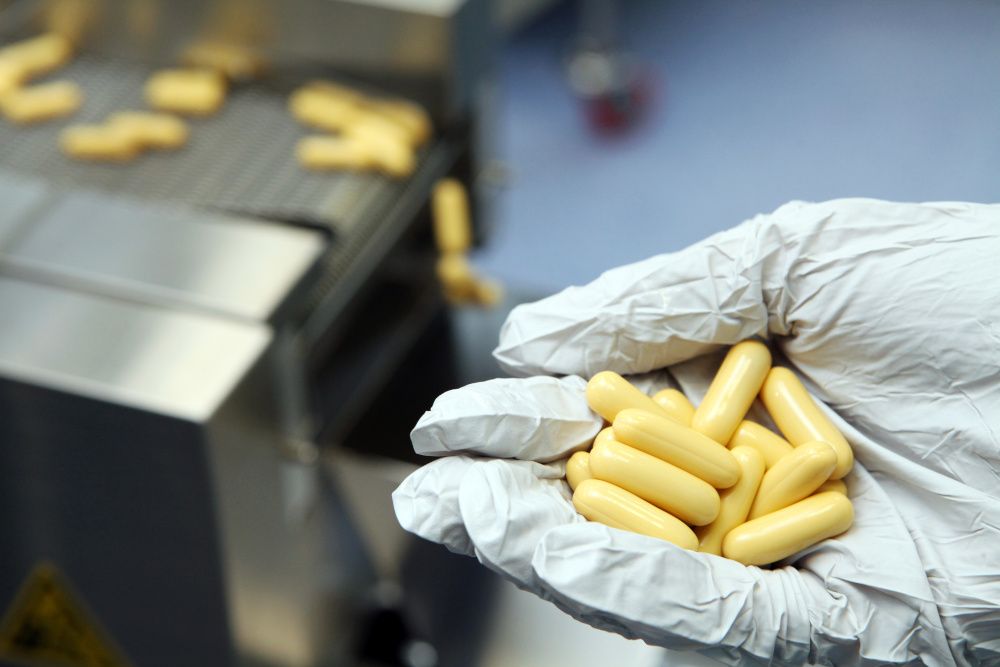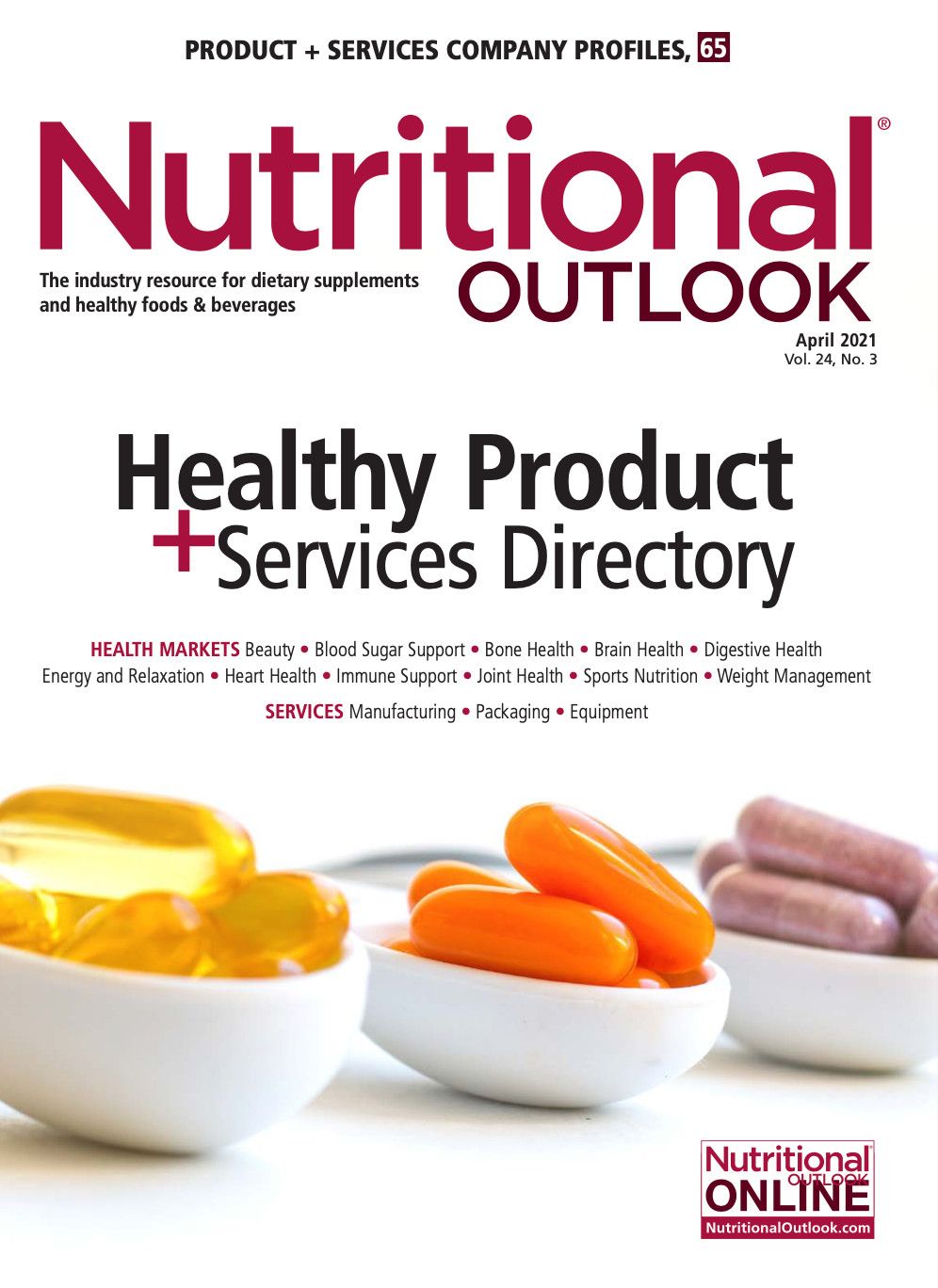Nutraceutical equipment: Connectivity, speed, and efficiency are paramount
Nutritional Outlook spoke to a few equipment suppliers about equipment features their clients are prioritizing.
Photo © Neznamov1984 - Stock.adobe.com

To deal with growing demand for nutraceuticals and functional food, companies are ramping up production.
“Given the rise in healthcare costs and chronic diseases, potential mistrust in conventional medicine, and the overall desire of people wanting to live healthy lives, the demand for nutraceuticals is increasing,” says Lanel Menezes, PMP, business manager, Americas, for Safeline x-ray systems at Mettler-Toledo Product Inspection (Lutz, FL). “The industry is expected to grow at a CAGR of 9.3% between now and 2027.”
As supplement manufacturers analyze inefficiencies, their equipment suppliers are noticing trends among their clientele.
Speed and Efficiency
Manufacturers need to boost production without diminishing quality and are seeking equipment to help.
Mettler-Toledo is seeing more demand for inspection equipment, Menezes says. Meanwhile, over at the firm’s checkweighing division, business manager Keri Klein says she’s also seen a spike in checkweigher sales, which she says “can be attributed to manufacturers’ increased focus on cost savings and the scaling up of production and expansion of product lines.”
Speed is obviously paramount, including ease of changeover. “Speed, naturally, is always desirable since higher output in a shorter time means more profit per hour,” says Ben Voelcker, product manager at the medical packaging machinery division of Maruho Hatsujyo Innovations Inc. (Norwell, MA), the U.S. subsidiary of Maruho Corporation, Ltd. “This same logic can be applied to the tooling changeover aspect. The largest driving factor we have seen recently is a request for more competitive tooling prices. We have worked with several companies who have all made it clear that tooling cost is a large driver in their decision to purchase a machine.”
Efficiency needs are ongoing. “Within food and beverage specifically, we’re seeing a propensity for combination systems to reduce overall footprint and increase product-inspection capabilities,” notes Mettler-Toledo’s Klein. “These are systems that combine one or more inspections in one machine.”
Connectivity
Greater connectivity is also critical. Menezes says Mettler-Toledo’s customers are seeking “connectivity solutions to improve line efficiencies that maximize production uptime and reduce costs.” Features like automated reporting are increasingly leveraged. The firm’s product-inspection systems incorporate multiple statistics-generating reports, he says.
John Ross of Charles Ross & Son Co. (Hauppauge, NY), a supplier of mixing, blending, drying, and dispersion equipment, sees ongoing demand for programmable logic controller (PLC) controls. “It’s more common nowadays for companies to invest in PLC-based controls with automated recipe system and data-logging features,” he says. “Wireless connection allowing for remote control from tablets, laptops, and smartphones is also an increasingly popular upgrade.”
Equipment customers are getting savvier by the day, says Klein. “We’ve recognized that our customers are becoming increasingly interested in and educated about connectivity and integration,” she says. “Advanced software can allow customers to connect all of their product inspections as well as integrate with a customer’s local system. Integration can be done at varying levels and will offer a sizeable ROI through added quality assurance, regulatory compliance, operational performance, labor efficiency, waste reduction, etc.”
Getting Better All the Time
Upgrades are the name of the game. Menezes says Mettler-Toledo enhanced its x-ray systems to reduce product waste via “multilane retracting belt and end-flap rejection systems, or other custom reject mechanisms on x-ray systems.” Meanwhile, Klein says Mettler-Toledo recently launched a “robust” IP69K-rated Global Washdown Checkweigher that can withstand “the harshest” cleaning and sanitizing.
Maruho Hatsujyo Innovations modified the design of its Eagle-Omni blister packaging machines to expand feeding options, Voelcker says. A few food companies have expressed interest in the machine. Meanwhile, the company’s Eagle-Rx blister packaging machine was “optimized” for rotary processing, a feature favored by nutraceutical firms.
Ross says “food companies are serious about balancing customization and cost.” His company will work closely with clients to customize sanitary design features, surface finishes, seals, feed ports, discharge valves, and more on its mixers and blenders.
More to Come
Equipment suppliers aren’t seeing a slowdown. Says Klein, “We expect to see sales in the nutraceutical and food/beverage industry increase in 2021, specifically in the checkweighing combination systems that include vision, metal detection, and x-ray inspection technology.” Menezes predicts more demand for inspection equipment—“in particular, high-throughput, premium inspection systems.”
Long lead times can hinder a company awaiting a needed piece of machinery. No one knows this better than equipment suppliers. Mettler-Toledo launched its C31 Quick Ship checkweigher, which is “configured to order” in less than three weeks. “We expect this offering to complement our 2021 sales by meeting the growing demand quickly,” Klein says.
Flexible options like “rent now, buy later” are also popular. Ross says more clients are taking advantage of Charles Ross’s rental program, including for its bestselling high-shear mixers and ribbon blenders. This option not only lets clients try the equipment before they buy—“renting a machine indefinitely and converting the rental into a purchase when they are ready,” he says—but it enables faster lead times given that the company keeps a wide range of sizes and models in stock ready for rental.
With help from their equipment-supplier friends, nutraceutical and food manufacturers are poised to meet growing demand, whenever it comes.

Prinova acquires Aplinova to further increase its footprint in Latin America
April 7th 2025Prinova has recently announced the acquisition of Brazilian ingredients distributor Aplinova, which is a provider of specialty ingredients for a range of market segments that include food, beverage, supplements, and personal care.

























